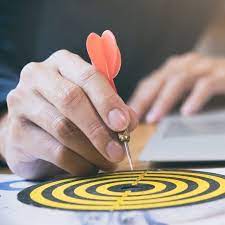Soft Skills
Soft skills are non-technical skills that have an impact on how we do business and include how to interact with colleagues, how to solve problems, and how to manage things. This type of skill determines the way people interact in their relationships with others. These skills include interpersonal and communication skills, listening skills, time management and empathy with others.
Reasons for Importance
One of the most important reasons for these skills is that soft skills are transferable and a person learns skills along with his job. These skills require the ability to actively listen to the customer and service needs.
Attributes
•Problem Solving
•Effective Communication Skills
•Individual Management
•Motivation
•Adaptability and Flexibility
Types of Soft Skills
1. Communications
Effective communication skills are done through the interview method. Communication includes how to talk to others. Communication skills include active listening, conflict resolution, negotiation, public speaking, writing, non-verbal communication, empathy, self-confidence.

2. Solving Problem
Employers value people who can solve problems quickly and efficiently. To achieve this goal, employers need specialized knowledge to quickly solve the problem or the opportunity to research and consult with colleagues to find a scalable solution. Problem solving includes things like the following:
•Creativity
•Research
•Teamwork
•Critical Thinking
•Analysis
•Decision making
•Measure
•Diagnosis
3. Creativity
Creativity is a broad ability that includes several different skills. Creative employees find new ways to perform tasks, improve processes, and explore new ways of doing business. Creativity includes:
•Curiosity
•Learning from Others
•Open Mindedness
•Accepting Calculated Risks
•Innovation
•Experimentation
4. Work Ethics
Work ethic is the ability to perform tasks in a timely, quality and desirable manner. With work ethics, we can establish a positive relationship with the employer and colleagues. Many employers want to work with people who have a good work ethic and are eager to learn. Work ethics include:
•Attention to details
•Correct work
•Continuity
•Time Management
•Organization
•Motivation
•Perseverance
•Consequential

Increased Abilities
1. Skill Practice
By practicing we can improve experiences. For example, we can improve our confidence by being punctual at work and at home and starting and finishing the project earlier.
2. Imitating the Experience of Others
There are professional people around who have strong abilities. By observing how others work, we can create a smooth experience. For example, find people with communication skills who take notes of what others say during meetings. This is an active listening exercise that is effective in our work.
3.Identify Important Goals
By reviewing our performance in the workplace and asking for constructive criticism from friends, we can measure and define our goals. This helps us determine the main context for goal setting and the areas to highlight in the interviews.

4. Find Resources to Help You Learn
We can improve our experiences by using different resources such as books, podcasts and online classes. Although some of them require payment, many of them are always free.
5. Show Your Abilities
We can add these skills to our resume and use them in a job interview. With our friendly behavior, we can put a seal of approval on our abilities.
Up to Sum
In this article, we learned about the features and types and methods of soft skills., are non-technical skills that have an impact on how we do business and include how to interact with colleagues, how to solve problems, and how to manage things.


